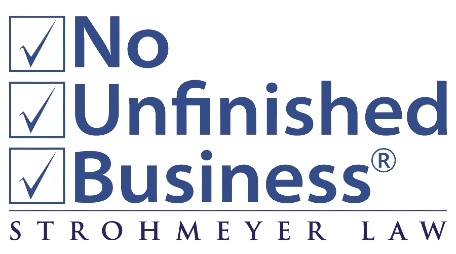Did The IRS Change Its Rules on Basis Step-Up for Irrevocable Trusts?
Was there a recent change in the basis step-up rules for irrevocable trusts? Get some straight answers on this important aspect of planning.
Misconceptions About the IRS and Basis Step-Up
There’s a misconception floating around – that the IRS has made changes concerning the basis step-up for assets held in an irrevocable trust. To clear the air, the IRS has not made such changes. These rules have remained consistent for a significant amount of time.
Understanding Basis Step-Up
To understand the heart of the matter, let’s break down the concept of a basis step-up:
What is Basis? In the context of income tax, the basis is the initial investment in an asset. When this asset is later sold, any amount above this basis is potentially subject to tax.
The Benefit of Basis Step-Up: When an individual passes away, assets they owned get a basis step-up to their fair market value at the time of death. This means that the beneficiaries can potentially avoid or reduce capital gains taxes when they sell these assets.
The Key: For an asset to receive this basis step-up, it needs to be part of the individual’s gross estate and possibly subject to estate tax.
The Evolution of Estate Tax Exemption
Years ago, the estate tax exemption was considerably lower. Over time, it has increased substantially, and as of 2023, the exemption amount stands at 12.92 million per person. This adjustment means that while many benefit from the basis step-up, they may not have to pay any estate tax.
Schedule a free consultation with Strohmeyer Law to protect your family with an estate plan.
Irrevocable Trusts: The Heart of the Matter
One of the prevalent strategies in estate tax planning involves placing assets into irrevocable trusts. Here’s what you need to know:
Purpose: Assets moved into an irrevocable trust generally aim to avoid estate tax. They aren’t part of the individual’s gross estate for estate tax purposes.
The Trade-Off: While you may save on estate tax, you might miss out on the basis step-up since these assets are no longer part of the estate.
The IRS Ruling: Clarifying the Misconception
The recent IRS ruling, specifically Revenue Ruling 2023-2, reiterates the existing understanding: assets that aren’t part of the gross estate won’t benefit from a basis step-up. However, this doesn’t mean that all assets in irrevocable trusts are exempt. It boils down to the specific details of the trust agreement and the degree of control one has over the assets.
Conclusion: Understanding the Rules, Not Misinterpreting Them
The bottom line is that there hasn’t been a drastic shift in the rules. The recent discussions merely highlight the existing understanding of how assets in irrevocable trusts interact with estate tax planning. As always, it’s vital to scrutinize individual trust agreements and seek professional advice to navigate the intricacies of tax implications effectively.
End-of-Year Strategies for Irrevocable Gifting Trusts
As the year draws to a close, there are some crucial actions to take with an irrevocable gifting trust.
What to Do If You Receive an IRS Letter
Receiving a letter from the IRS might send shivers down your spine. So what's your first step? Is it always a cause for alarm? Let's walk through what you should do.
Why You Need a Trademark
We'll explain the the four main areas of intellectual property for business owners, why trademarks are crucial, and how to get your marks registered.





